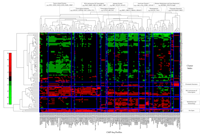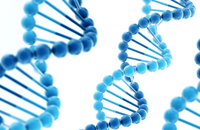
Research Groups


Bioinformatics integrates knowledge from computer science, biomedical science, and mathematical statistics to study and model biological data. It has high impacts to our health, life, and society. Tools and models from this area greatly advance the understanding of life. Many projects, such as Human Genome Project, Human Brain Project, and precision medicine plans rely on the tools from bioinformatics, and many startup companies are fostered from bioinformatics.
Our department has an active bioinformatics research programme, and we study quite a number of interesting problems. For instance, motif discovery helps us distinguish real signal subsequence patterns from background sequences. Multiple sequence alignment studies the similarity between a set of biological sequences. Protein structure prediction predicts the 3D tertiary structure from an amino acid sequence. Gene network inference is a statistical method for inferring gene networks from microarray or RNAseq data. Promoter prediction annotates the promoter regions in a genome. Phylogenetic tree inference studies the evolution relationship among species. Drug scheduling can help solve the clinical scheduling problems effectively.
Contact: Prof WANG Lusheng

The department has a group of researchers in distributed systems and computer networks, with interests in a variety of research topics in this area, including distributed computing, parallel computing, mobile computing, fault tolerance in distributed systems, computer networks, wireless sensor networks, wireless mesh networks, mobile ad hoc networks, Internet technologies, and web-based information systems.
Contact: Prof JIA, Xiaohua

Our major research focus is to combine ideas and techniques from evolutionary computation, traditional mathematical programming, and machine learning for designing efficient metaheuristic algorithms for dealing with hard search and optimization problems in fields ranging from engineering design to e-commence and management planning. The metaheuristic optimization group has an excellent research track record. The multi-objective evolutionary optimization algorithms based on decomposition (MOEA/D) developed by us have become one of the most widely used algorithmic frameworks in our area.
Contact: Prof KWONG, Sam

The increasing interconnection of computing resources across the entire world has exposed both information and process to potential attacks. Information security is an enabling technology for e-commerce. Indeed many kinds of remote transactions are only feasible if security requirements can be satisfied. At the Department of Computer Science, our view is that not only communication has to be secure, networks and servers also need to be protected from malicious intrusion while allowing legitimate access. Systematic methods also need to be applied to assess the security risk in organizations.
Cryptographic techniques have been applied to achieve confidentiality and integrity of data. In addition it is also applied to effect required and desirable properties of many interesting systems implemented over open networks such as the Internet. Examples range from payment systems, electronic cash, voting systems, to auctioning systems. Security and cryptographic protocols have significant applications in the information age.
Some of the current research work includes:
- Human-oriented password systems
- Deniable authentication protocols
- Web page protection schemes
- Object-oriented risk data repository
- Watermarking schemes
Pagination
- 1
- 2